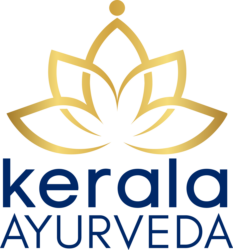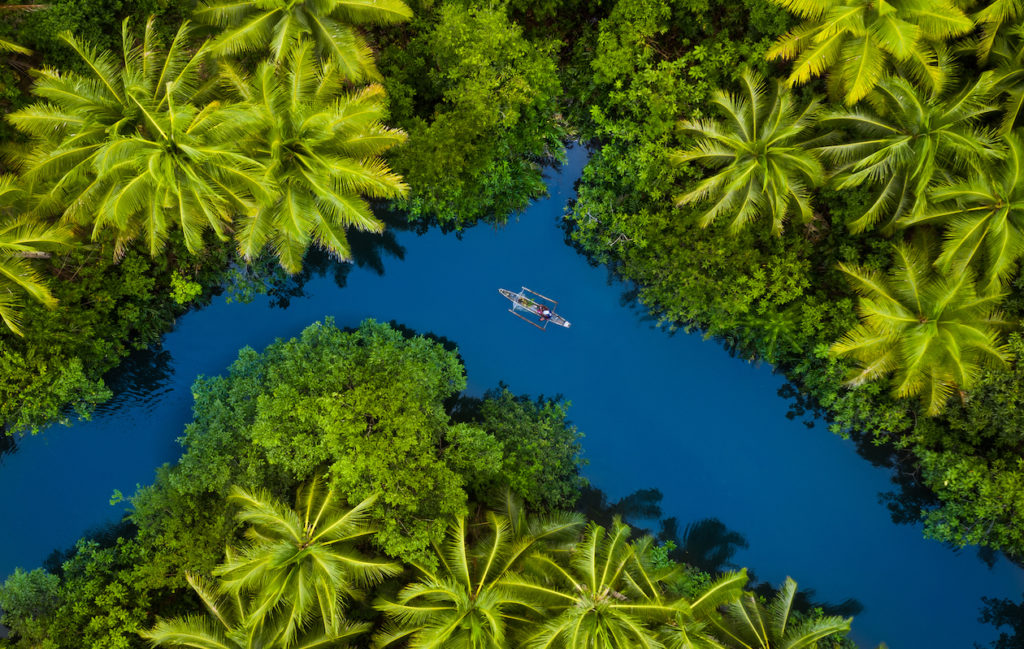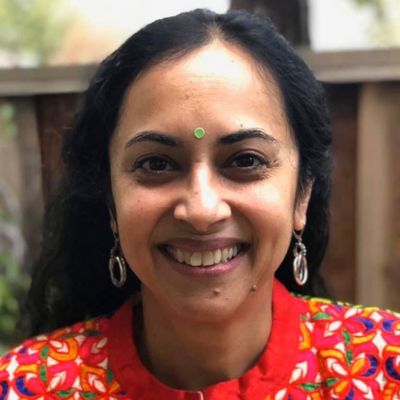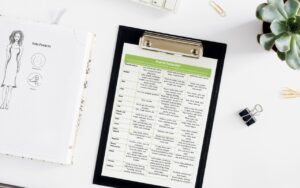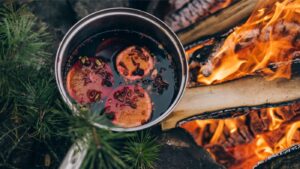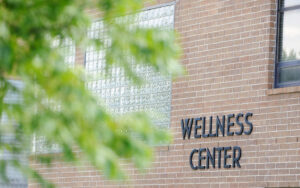The East is renowned for its holistic medicine. Traditional Indian Medicine, or Ayurveda, and Traditional Chinese Medicine (TCM) are the most commonly known forms in the west. While these practices were originally conducted by local domain experts, today we live in a “Global Village” in which people from any background can pursue these traditions.

Kerala alumnus, July Huang, is a trailblazing Asian Yoga Teacher, Ayurvedic Practitioner and current Ayurvedic Doctor program participant, who not only teaches Ayurveda in Mandarin, but also has a robust Ayurvedic practice offering Panchakarma therapies. It was refreshing and inspiring to interview her for our Representation Matters series, learn about her personal background of trauma and transformation, and witness how hard she has worked to build her career and follow her Dharma of healing.
We’re also delighted at Kerala Ayurveda Academy to collaborate with July to spread Ayurvedic education in Europe, which kicked off in the fall of 2021 with the Ayurvedic Health Counselor Europe program launch. We hope that learning about July’s experiences can encourage more students and clients from the Asian population to seek out Ayurveda. Sit back with a cup of herbal tea and enjoy July’s moving story.
From Taiwan to Switzerland and Norway, TCM to Ayurveda, and everything in between
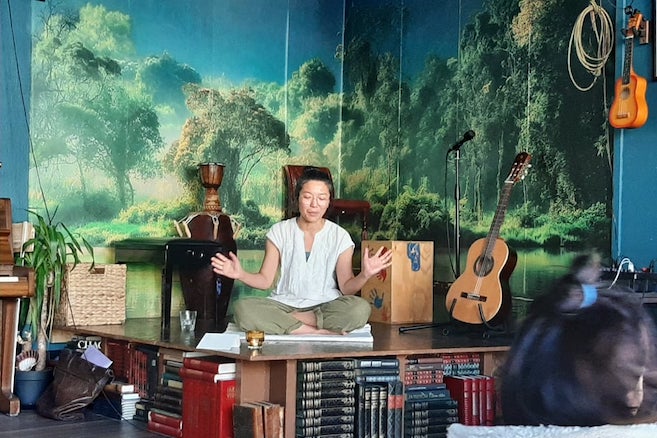
Tell us about your background and how you got into Ayurveda?
I was born in Taiwan. In Taiwan, it is remarkably interesting that everyone knows a bit about TCM (Traditional Chinese Medicine), a bit like in India where Ayurveda is a part of life growing up.
I moved to Switzerland when I was 29 and was working in the tourism industry with Japanese tourists as a journalist. I interviewed high-end industry and fashion designers and loved to travel. It was a totally different lifestyle working in international five-star hotels in the front office. I then worked in the trading business, working with Asus as their channel manager. Later my client hired me and I became a New Business Manager for the biggest online shopping outfit in Switzerland and traveled a lot. The jobs were very well paid.
At the age of 31, I had a trauma awakening which was a turning point in my life. The stress from a hectic life and job, being married to someone from another cultural background and working in a company where I was the only foreigner made me reconnect to my early childhood trauma. I came from a single parent family with a lot of abuse and violence, and a few instances where I almost died. It’s easier now, and I share my experience. Back then, even in that situation, I regarded my mom as the only one I should take care of till the age of 31. That is when I felt the current job doesn’t fulfill me, I’m longing for something more and the trauma caught up with me.
Western medicine said I was depressed. I had physical pain and was crying without any reason. I went to bed hoping I wouldn’t wake up and woke up feeling like life had no meaning. That led me to my Yoga practice and Ayurveda.
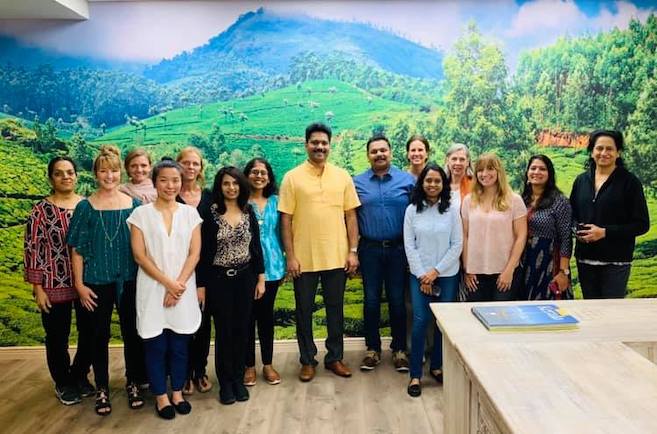
What was your first experience like learning Yoga and Ayurveda?
I found a great deal of emotional release in Yoga. I went to India for a Yoga teacher training and became the first Mandarin speaking Yoga trainer in Switzerland. My training was in Goa, and I visited Delhi and Dharamshala. I worked at an office during the daytime and took many classes after work teaching Yoga to Taiwanese students. I was busy, but I found this meaningful and was happy.
In 2013, after teaching Yoga for one year, I felt something was missing and wanted to combine Yoga with something because it was mainly related to the body, muscles, and skeletal system. I wanted to use Yoga philosophy to help people emotionally rather than merely as a physiotherapist. What about the other parts: food and lifestyle? What about the aspects I grew up with in TCM? I was searching; I was into Reiki healing and Tibetan bowls. I found the missing component when I joined a 3-day workshop by Dr. Timothy McCall, author of the book, Yoga as Medicine, and he introduced us to Ayurveda. I felt like this was the answer, the umbrella to combine Yoga, food, lifestyle, energy healing and Yoga Nidra. I wanted to know more!
I found the biggest school to study in Germany. They had a branch in Ayurveda which included; Ayurvedic therapy; Bodywork, Panchakarma, food as medicine, how to do assessments, Kayachikitsa (internal medicine) and Srotas (channels), not herbs — but using food as medicine. I had stepped into the Ayurvedic field.
Did you ever feel like you wanted to study TCM or did you just gravitate to Ayurveda?
Ayurveda just happened! It (TCM) is very deep knowledge like Ayurveda, and I don’t want to mix them, before I feel I’m established in Ayurveda, if at all. In my training in Germany, I said I come from a TCM background and hope that one day I could see what is common and help both sides. That is hard.
Interesting thing is, because I teach Ayurveda in Taiwan and one training was ‘Food as Medicine,’ I analyzed different cultural traditions and found Ayurvedic principles are the same in Chinese traditional cooking, Korean, Thai, Japanese and even Arabic food that uses spices for medical use. When I prepared for the training, I found how people use local ingredients in different seasons and situations and fasts and why Muslims do fasting. To me that is like Ayurvedic principles or that of natural, holistic medicine and I can use simple Ayurvedic concepts there. When people say Ayurveda is Indian medicine that is too narrow, Ayurveda (as the Science of Life) is in your life even if you’re not from India.
I did wonder about TCM in terms of learning Acupuncture, but Marma Chikitsa is so interesting, and I realized it can combine with Pranic healing – not in the common way it is used, but Prana Vidya, the knowledge of Prana like Qigong which are nothing but using Prana from Brahma to create balance. This is something we use even in Abhyanga, we use our Pranic field to help others, also the Pranic field from the herbal oils. Even cooking is Pranic healing. Even assessment is Pranic, when we take the pulse, we talk to Rogis, we are sensing the Pranic field. In the end, Marma is not hard to press but if we can sense the Guna of the Prana going through and set a good intention, the healing will happen.
How did Yoga and Ayurveda help you heal?
Ayurveda is like a miracle. When I was 14/15, I was told that I had PCOS, there were no cysts yet, but they surmised the chance for me to get pregnant was very low. I took (birth control) pills to control and get a fake ‘menstruation’. From ages 15 to 30, I was on the pill. I’m not sure if the depression was also linked to that.
At 31, I decided it doesn’t make sense. It doesn’t make my body function and it just makes me bleed. It doesn’t make me fertile again. If I stop the pill, my ovary still won’t function, and I had other pelvic issues occurring, so I talked to my doctor and stopped taking birth control pills. I was told to try IVF and had tried to conceive in my first marriage but couldn’t. I decided to let go and enjoy my life.
I did Ayurveda therapist training in Germany as a one-month residential course where daily we had to do Abhyanga, either giving or receiving it. Every other day I received a whole body Abhyanga three times, and the food was Ayurvedic with Yoga and meditation in the morning. It was something like a Panchakarma. This was July 2013 and in October I was pregnant! It was so lovely and crazy, my new husband asked how did this happen, and I said, I am more surprised than you.

Applying Ayurveda to family healing and motherhood
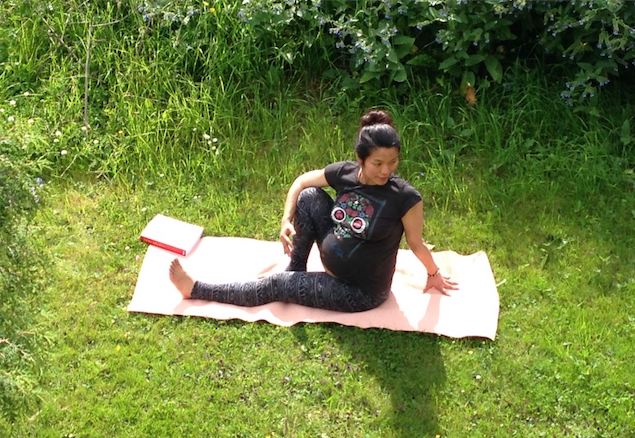

I’ve noticed that a lot of people who grow up with trauma want to heal not just themselves, but also their family and other people. Did that play a role in your career path and how do you set a boundary here?
It is very interesting, if you asked me this question 2-3 years ago, I may have given you a totally different answer. To take care of my childhood trauma is the hardest part of being a mother. Our generation is good; we chose not to do to others what happened to us. So, when I became a mother, I realized it was a crazy and scary thing, when I risk doing something similar to my kids as what my Mom did to me. I tell my husband when kids are crying and if you see me getting triggered, separate us, I don’t want to carry on a pattern.
In 2019, my mom passed away, and it was the biggest journey. I went to Taiwan. She wanted to meet me, but I didn’t feel any support and love, it was like a superficial thing to show that my daughter came back just for me. I felt slightly betrayed and I talked to her about it and she said, “What do you want me to do?” What do you expect? She even said everyone tortured their kids back then. Till the end, I didn’t receive any apology and I said, it is nothing about her anymore. 2019-20 was very hard, I had a harsh reaction mentally and physically, but self-healing is still going on. I also studied about childhood trauma and how yoga and Ayurveda can help. Without that, life would be very hard. I realized that many people’s imbalance arises from certain expectations or experiences in their childhood. The more you run away, the deeper and bigger the reaction afterwards.
There are so many Rogi’s with childhood trauma, violence and abuse, men, or women, that have faced oral abuse or violence, from parents, siblings or partners or even best friends. Now I am happy that because of my experience I can share that, and people see me and realize they can also be better. The best thing for my life I can do is not to feel that I am a victim or sad person. But, I want to honor that experience and share it with others and support others in similar situations. It means a lot, not passing it on to future generations.
As a mom, how do you balance studying, working, teaching and motherhood?
The hard ages have passed, you know as a mother. They really need us before elementary school, after that, they’re busy with friends and a lot of other things. Before that it was very hard. I’m very lucky my Mother-in-law lives with us and my Father-in-law and his new wife live not very far away, and take care. Norway has a very good social care system, right from the time kids are one year old they can start kindergarten.
Working hours are also so short. We have 32 hours per week, my husband’s working hours are from 8 to 3. It’s really nice. I take care of kids during the daytime and Rogi’s in the evening when they are also free. I work on weekends from time to time and that’s how I maintain the balance. I let the kids know and they also like Ayurveda now. When I’m busy, I’m busy. When I have time, I’m fully for them.
What’s your personal guiding philosophy?
In terms of faith, I believe in everything. Buddhist is my cultural background, but everything is in everything. It is like in yoga, whichever path you take, you will reach the truth, similarly in religion or in healthcare with Ayurveda or Traditional Chinese Medicine what we want to reach, whatever the path, we find it and choose the path that we are brought to because of karma.
I have a meditation practice, but it is not regular. I connect to myself very often, while working. Instead of sitting for meditation, I look at the sky and feel what message is there for me.



We hope you have enjoyed learning about July’s background as much as we did! Stay tuned for the next installment of our interview, where we’ll learn about July’s current Ayurvedic practice, bringing the Ayurvedic Health Counselor program to Europe and her experience as an Ayurvedic Doctor student!
CONNECT WITH JULY
Visit www.shankha.no to find out more about July’s practice.
